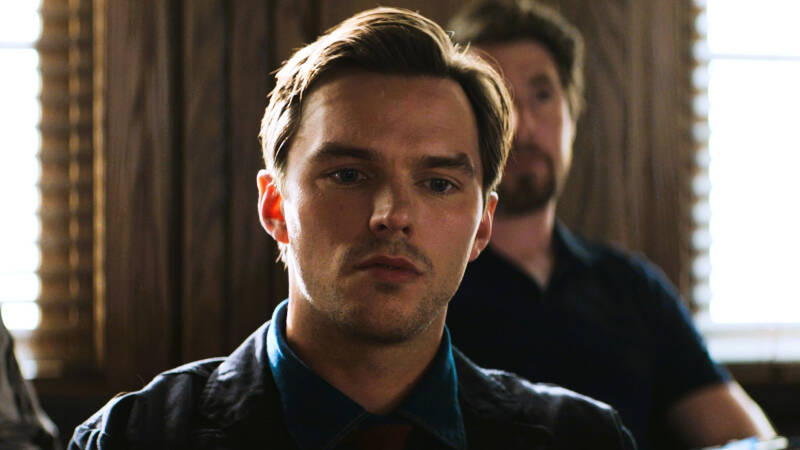
Can we all just acknowledge the sheer epicness of CLINT EASTWOOD directing the everloving sh*t out of a film at 93!!!
Clint Eastwood’s "Juror #2" is a taut and morally charged legal drama that transcends the confines of its courtroom setting to interrogate the boundaries of truth, justice, and personal responsibility. Anchored by deeply committed performances, an engaging and morally grey screenplay, and Eastwood’s restrained yet masterful direction, the film resonates as both an intimate character study and a reflection on the imperfections of human judgment.
The narrative follows Justin Kemp, an everyman juror whose life is upended when he realizes he may be implicated in the very crime he is tasked with adjudicating. This harrowing premise sets the stage for a deeply personal exploration of guilt and conscience. Hoult delivers an understated yet evocative performance, imbuing Justin with layers of vulnerability, fear, and moral conflict. His portrayal draws the audience into the suffocating uncertainty of his predicament, making his struggle both heart-wrenching and painfully relatable. Opposite Hoult, Toni Collette shines as prosecutor Faith Killebrew, a figure whose unrelenting pursuit of justice is tinged with ethical ambiguity. Collette skillfully navigates the duality of her character, balancing sharp intellect with a quiet empathy that hints at her own internal struggles.
The screenplay, penned by Jonathan Abrams, is a study in moral complexity. Eschewing easy answers, the script deftly intertwines Justin’s personal reckoning with broader systemic critiques. The courtroom, often depicted as a theater of clarity and resolution, becomes in "Juror #2" a crucible for ambiguity, where every revelation deepens the ethical quagmire. Abrams resists the temptation to moralize, instead inviting viewers to wrestle with the same thorny dilemmas as the characters.
Eastwood’s direction is marked by his signature subtlety and precision. At 93, he brings a lifetime of storytelling wisdom to bear, allowing the narrative to breathe without succumbing to melodrama. The film’s pacing is deliberate, at times bordering on meditative, reflecting the gravity of Justin’s plight. Yves Bélanger’s cinematography complements this approach, juxtaposing the oppressive intimacy of the courtroom with the stark solitude of Justin’s private moments. The muted color palette and meticulous framing evoke a sense of inevitability, mirroring the inescapable weight of Justin’s conscience.
Mark Mancina’s score is equally understated, weaving tension and melancholy into the fabric of the story. The music never intrudes but rather underscores the emotional undercurrents, amplifying the film’s quiet power.
Despite its many strengths, "Juror #2" is not without its imperfections. The measured pacing, while effective in building tension, may feel overly drawn-out in places, particularly in the second act. Additionally, the film’s conclusion, while thematically consistent, leaves certain moral questions unresolved, a choice that might leave some viewers yearning for closure.
Ultimately, "Juror #2" is a thought-provoking exploration of justice and humanity, one that challenges audiences to confront uncomfortable truths about the choices we make and the systems we uphold. It is a testament to Eastwood’s enduring talent as a filmmaker and a worthy addition to his distinguished oeuvre. For those willing to engage with its moral intricacies, "Juror #2" offers an unforgettable cinematic experience.
8/10
Add comment
Comments